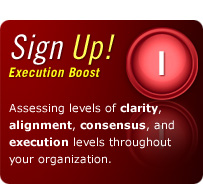Interpersonal Expertise Tip: Affirming Similar Core Values
February 3rd, 2010
In order to have a truly satisfying relationship with other people we must know our core values (ways of thinking or behaving that we do not want to compromise on) and be able to identify and affirm these values in important others. Having a clear idea of these values helps us and those around us to better know whether or not we can expect to have a smooth relationship or one that will consistently experience dissatisfying “road bumps.” This Interpersonal Expertise Tip focuses on identifying core values in ourselves and others – and how affirm these values in ways that strengthen relationships.
Core values can be affirmed by becoming clear about our own values and helping others do the same. If this is done thoroughly, the chances that we will be able to affirm similarities goes up significantly (longer lists of core values makes it more likely that at least one core value from each person’s list will overlap). Here are some ways people have been able to affirm similar core values:
- Phase I: Generate a list of your Primary and Secondary Objectives in life and keep it updated. The first step in core value affirmation with others is often awareness of our own core values. One way people become aware of these values is through an exercise we call “Primary and Secondary Objective Identification.” We normally recommend that people begin by identifying the top 5 priorities in their lives (AKA: Primary Objectives), then move on to clarifying their next 5 most important objectives (what we call Secondary Objectives). Of course, everyone’s objectives will be different, but here are some examples of the kinds of Primary Objectives that people often list during this exercise: (a) Be a healthy individual, (b) Promote effectiveness and satisfaction throughout my team or family, (c) Increase my revenue by 10% every year. Secondary Objectives are often priorities that are still important, but are not as important as Primary Objectives. Again, Secondary Objectives depend on what is important to individuals, but here are some examples we have noticed making peoples’ lists over the years: (a) Learn to play an instrument, (b) Read more books on my top 100 list, (c) Visit a new city every 2-3 years. Regardless of what makes our list, we can become more aware of what we value most when engaging in this exercise.
- Phase II: Ask others to generate and update their own Primary and Secondary Objectives. We we have completed our own list of objectives in life, we can move one step closer to affirming similar values with others by asking them to engage in the same exercise. It can be helpful to show others our own list of objectives so others get a quick and clear sense of what this exercise entails. We’ve found this process can be an extremely fun and effective way of getting to know others and/or breaking the ice with new people in our lives.
- Phase III: On a regular basis (weekly, monthly, quarterly, etc.) identify areas of Primary and Secondary Objective overlap and regularly affirm these similar core values. So often, it can be easy to forget our similarities as we are encouraged in many ways to be focused on our differences. Setting regular times to update and share our Primary and Secondary Objective lists with important others can be a way to ensure we stay focused on our common interests and values. Very often, these get-togethers can be an opportunity to talk about how we can support each others’ objectives in life; for example, helping people meet others who can help them, devising a plan to work together on some common objectives, or simply rooting each other on as everyone moves toward their most important aims or experiences in their lives.
NOTE TO THOSE USING THE MISSION FULFILLMENT SYSTEM: You can move toward increased Interpersonal Expertise by adding a new Objective to your system using the “Add New Item” link (for example, “Regularly affirm similar core values with important others in my life”). You can then develop a SMART Goal related to that new Objective by using the “Add Subitem” link to the far right of the new Objective (for example, “Meet with Jane and Chris once a month to go over our list of Primary Objectives together and identify areas where we want to support each other.”).
FOR THOSE WHO ARE NOT ON THE MISSION FULFILLMENT SYSTEM: Click here to for more information and click here to sign up.
FINAL NOTE: If you were linked to this article by a video or email, please return to that link and proceed with any other instructions that you deem helpful. For more Execution Excellence and Interpersonal Expertise tips and tools visit our site at: www.excellenceuniversity.net
Article Filed under: 2. Interpersonal Expertise Tips



2 Comments Add your own
1. foundation repair | October 19th, 2013 at 4:35 am
I was very thrilled to find this site on google.I wished to say many thanks to you with regard to this excellent article!! I certainlyliked every little bit of it and I’ve you bookmarked to look into new stuff you post.
2. Lindsey | October 7th, 2014 at 6:59 pm
This is a huge part of my life recently insofar as it has helped me and is still helping me weed out those who do not support/understand my goals in life, and either have less contact with them or none at all. I do not mean to come across as picky or indecisive, but as someone who seeks to help others grow, it seems I don’t exactly mesh well with someone whose goal is to make money at any cost. This is one reason I had to take a step back and break it off with my ex boyfriend. It seemed like we honestly had no similar core values at all, and when I tried to help us both find similar ones, it never really worked. But instead of at least trying to understand my core goals, he would criticize them.
To be honest, I really try to do something similar with most people I come into contact with, but I find it’s really hard to get them to think about these kinds of things. Instead of actually discussing core goals and values up front, it seems like it is more acceptable to just meander along until you bump into them (or not). Unfortunately, this means you may waste a lot of time on someone who either has no similar core values, or does not have any that facilitate a smooth relationship.
Personally, I think it would be so much easier to discuss this up front because it would allow one to make an immediate decision as to whether or not this would be a quality person to spend time with. I almost wish people had a sign on their head that would say, “my goal in life is to be a millionaire” or, “my goal in life is to help others grow to their full potential,” or something of the sort. It would be so much easier to make friends and form relationships! One can hope, though.
I hope that as time evolves, this becomes a more acceptable way to approach friendship and relationships in general. Because right now, it seems as though I am more annoying to people than anything when I try to do this. Perhaps I do not possess the finesse required to elicit such information eloquently, but I really hope it is understood as a genuine interest in trying to learn about the person rather than judge them. This is what helps relationships build and stay built through tough times, I just wish it was as easy (and fun to others) as this article makes it seem!
Trackback this post | Subscribe to comments RSS Feed
Leave a Comment
Some HTML allowed:
<a href="" title=""> <abbr title=""> <acronym title=""> <b> <blockquote cite=""> <cite> <code> <del datetime=""> <em> <i> <q cite=""> <s> <strike> <strong>